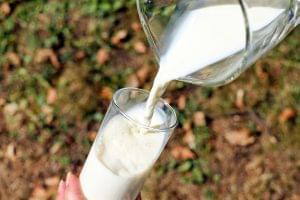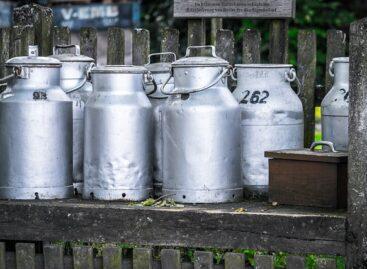People in Slovakia have started hoarding milk
The new hotspots of the foot-and-mouth disease epidemic in Slovakia are increasing consumer uncertainty – some buyers have started panic-hoarding, especially long-life milk and meat. In Slovakia, the epidemic has already affected a third of the milk supply, after the infection appeared on the largest dairy farms. But what can be expected here? According to Zoltán Harcz, the executive director of the Milk Product Council, the Hungarian market is stable, the supply is uninterrupted, and buyers have no reason to worry – writes the Agrárszektor.
Domestic self-sufficiency is significant
 Although Slovak milk imports temporarily doubled in January 2025, the vast majority – 90-95 percent – of the liquid milk available in Hungarian stores comes from domestic processors. According to Zoltán Harcz, the domestic industry could make up for last year’s 50 thousand ton import loss in a short time. The Hungarian milk supply is therefore secure, the impact of the demand wave here is more of a psychological nature.
Although Slovak milk imports temporarily doubled in January 2025, the vast majority – 90-95 percent – of the liquid milk available in Hungarian stores comes from domestic processors. According to Zoltán Harcz, the domestic industry could make up for last year’s 50 thousand ton import loss in a short time. The Hungarian milk supply is therefore secure, the impact of the demand wave here is more of a psychological nature.
Stable prices, stricter hygiene rules
According to data from the Institute of Agricultural Economics (AKI), the average producer price of raw milk in February 2025 was 208.55 HUF/kg, which was 1 percent higher than the previous month’s value and 27 percent higher than at this time last year. Due to long-term contracts between processors and producers, the development of prices is currently not affected by the epidemic situation in Slovakia.
Domestic dairies have also increased hygiene requirements. During milk collection, increased attention is paid to restricting the movement of drivers, hand disinfection, chassis washing, and the handling of milk samples. Dairy pasteurization processes – UHT, ESL and 72 °C heat treatment – guarantee that domestic milk is safe and virus-free.
Plant-based drinks are not alternatives in stores
Zoltán Harcz also drew attention to the fact that plant-based drinks and animal-based milks are not substitutes for each other, and misleading customers – for example, labeling plant-based drinks as “milk” – should be avoided. Although plant-based products are becoming increasingly popular, it is important that their presence on the shelves is accompanied by fair and transparent communication.
Related news
The government is supporting dairy farmers with a new measure
🎧 Hallgasd a cikket: Lejátszás Szünet Folytatás Leállítás Nyelv: Auto…
Read more >Modern ventilation could increase milk production, study finds
🎧 Hallgasd a cikket: Lejátszás Szünet Folytatás Leállítás Nyelv: Auto…
Read more >Related news
Farewell day at the 60th anniversary EuroShop trade fair
🎧 Hallgasd a cikket: Lejátszás Szünet Folytatás Leállítás Nyelv: Auto…
Read more >








